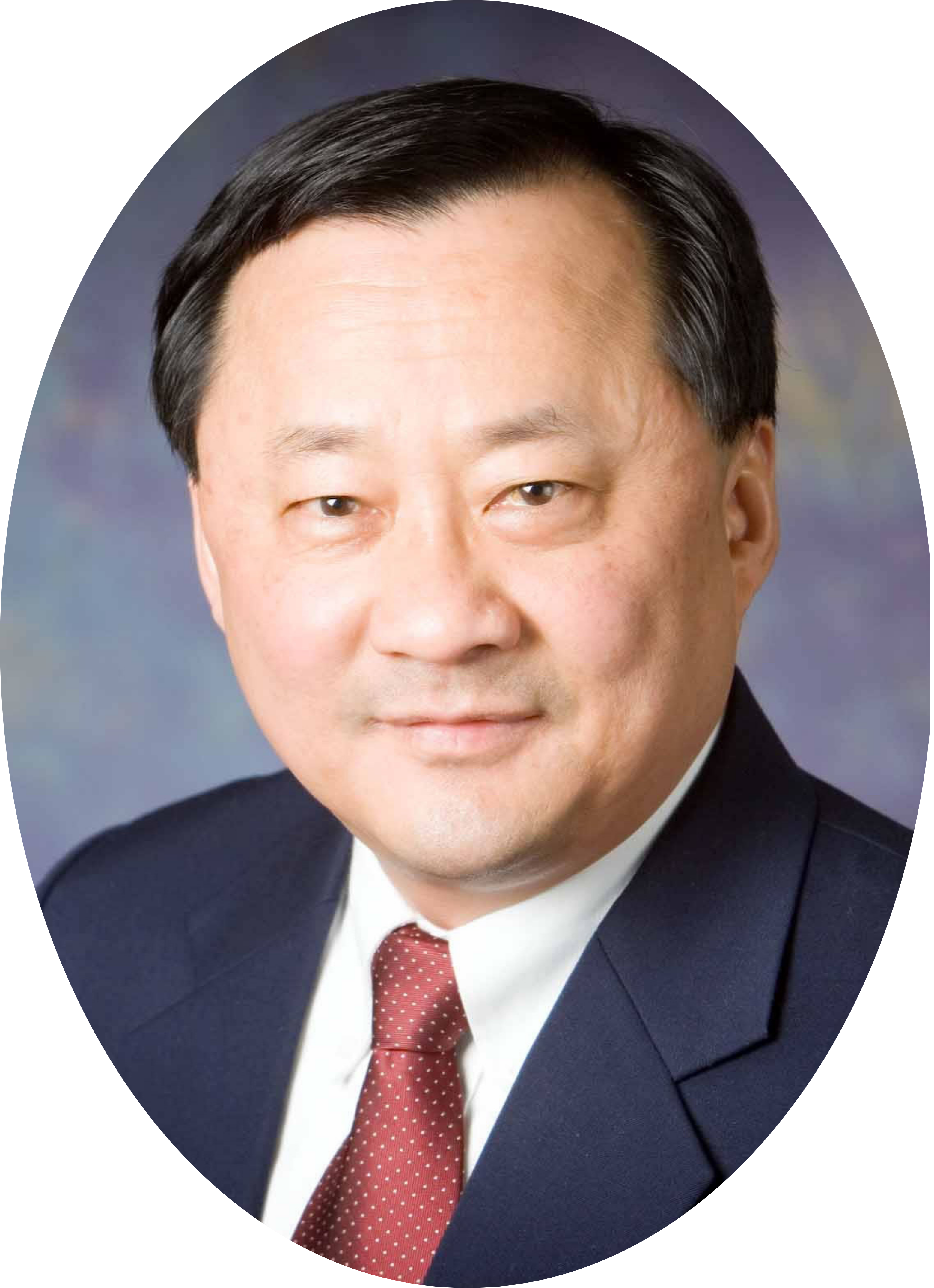
| Prof. Benjamin W. Wah, The Chinese University of Hong Kong, ChinaIEEE Fellow、ACM Fellow、AAAS FellowBenjamin W. Wah is a Research Professor at the Chinese University of Hong Kong, and Franklin W. Woeltge Professor Emeritus of Electrical and Computer Engineering at the University of Illinois, Urbana-Champaign. Previously, he served as the Provost and Wei Lun Professor of Computer Science and Engineering of the Chinese University of Hong Kong, as well as the Franklin W. Woeltge Endowed Professor of Electrical and Computer Engineering and Professor of the Coordinated Science Laboratory of the University of Illinois, Urbana-Champaign, USA. Wah received his Ph.D. degree in computer science from the University of California, Berkeley, CA, in 1979. He has received many awards for his research and service contributions, including the IEEE-CS W. Wallace-McDowell Award (2006), the IEEE-CS Richard E. Merwin Award (2007), the IEEE-CS Tsutomu Kanai Award (2009), the Distinguished Alumni Award in Computer Science of the University of California, Berkeley (2011), and the Bronze Bauhinia Star of the Hong Kong Self Administrative Region (2021). Wah's research interests are nonlinear search and optimization, multimedia technologies, and artificial intelligence. Wah co-founded the IEEE Transactions on Knowledge and Data Engineering in 1988 and served as its Editor-in-Chief between 1993 and 1996. He is the Co-Editor-in-Chief of Computers and Education: Artificial Intelligence and the Honorary Editor-in-Chief of Knowledge and Information Systems. In addition, Wah served the IEEE Computer Society in various capacities, including Vice President for Publications (1998 and 1999) and President (2001). He is a Fellow of the AAAS, ACM, and IEEE. Title: Objective Modeling and Learning of Perceptual Quality for Fast Interactive Multimedia Games Abstract: With advances in multimedia technologies, many interactive online games have been developed. However, the quality experienced by users when playing cloud-based games over the Internet varies because network delays may render the response in these games sluggish, slow, or non-responsive. In this presentation, we study the objective modeling and learning of the perceptual quality of interactive multimedia games. Optimizing perceptual quality is an ill-defined big-data problem and depends on many network- and application-dependent parameters. We first examine the hundreds of standards the International Telecommunications Union (ITU-T) developed for measuring multimedia perceptual quality over the Internet. Examples of the standards include the Mean Opinion Score (MOS), the E-model, Quality of Experience (QoE), and Quality of Service (QoS). These measures are application-specific and rely on quantitative metrics collected in real time. Moreover, they are expensive to obtain and may require subjective tests under specific operating conditions. This presentation presents a new objective-based approach that learns and optimizes perceptual quality in real-time cloud-based interactive games. We develop control strategies to hide network delays to let users perceive that they run their games on networks with much lower delays. Finally, we show examples illustrating the results. |
Prof. Yiu-ming Cheung, Hong Kong Baptist University, ChinaIEEE Fellow, AAAS Fellow, IET Fellow, BCS Fellow, AAIA FellowYiu-ming Cheung is currently a Chair Professor (Artificial Intelligence) of the Department of Computer Science, Dean of Institute for Research and Continuing Education (IRACE), and Associate Director of Institute of Computational and Theoretical Studies in Hong Kong Baptist University (HKBU). He is an IEEE Fellow, AAAS Fellow, IET Fellow, AAIA Fellow, and British Computer Society (BCS) Fellow. He is the awardee of RGC Senior Research Fellow with receiving a fellowship grant of HK$7.8 million over a period of 60 months. Furthermore, he has been elected as a Distinguished Lecturer of IEEE Computational Intelligence Society, and named a Chair Professor of Changjiang Scholars Program by the Ministry of Education of the People’s Republic of China for the dedication and exceptional achievements in his academic career. In addition, he is serving as the Editor-in-Chief of IEEE Transactions on Emerging Topics in Computational Intelligence. His research interests include machine learning and visual computing, as well as their applications in data science, pattern recognition, multi-objective optimization, and information security. Moreover, he has been granted one Chinese patent and two US patents. Title: Advances on Long-tailed Data Learning Abstract: Although deep learning has made great progress, a good model often requires a large amount of artificially balanced and annotated data. Unfortunately, real-world data are often unbalanced, typically exhibiting a long-tailed distribution, which refers to a small number of classes with abundant training samples but the remaining large number of classes only with very few training instances. Under the circumstances, the performance of deep learning models trained on long-tailed data declines sharply in the tail classes. However, tail classes cannot be ignored in various situations such as rare disease diagnosis, and anomaly detection. Subsequently, long-tailed data is still very challenging to deep learning. In this talk, the impact of long-tailed data on deep learning models will be first analyzed. Then, the research progress in this area will be reviewed, including some representative methods in the literature. Furthermore, our recent work for long-tail learning will be introduced. Lastly, the potential research directions in this field will be discussed. |
|
| Prof. Li Qing, The Hong Kong Polytechnic University, ChinaChair Professor of Data Science and Head, IEEE Fellow, IET Fellow, AAIA FellowQing Li is a Chair Professor and Head of the Department of Computing, the Hong Kong Polytechnic University. He received his B.Eng. from Hunan University (Changsha), and M.Sc. and Ph.D. degrees from the University of Southern California (Los Angeles), all in computer science. His research interests include multi-modal data management, conceptual data modeling, social media, Web services, and e-learning systems. He has authored/co-authored over 500 publications in these areas, with over 41400 total citations according to Google Scholars. He is actively involved in the research community and has served as an associate editor of a number of major technical journals including IEEE Transactions on Artificial Intelligence (TAI), IEEE Transactions on Cognitive and Developmental Systems (TCDS), IEEE Transactions on Knowledge and Data Engineering (TKDE), ACM Transactions on Internet Technology (TOIT), Data Science and Engineering (DSE), and World Wide Web (WWW), in addition to being a Conference and Program Chair/Co-Chair of numerous major international conferences. He also sits/sat on the Steering Committees of DASFAA, ACM RecSys, IEEE U-MEDIA, ER, and ICWL. Prof. Li is a Fellow of IEEE, AAIA, and IET/IEE. Title: KCUBE - A Knowledge Graph University Curriculum Framework for Student Advising and Career Planning Abstract: Knowledge representations and interactions are at the forefront of teaching, learning, and career planning activities in all endeavors of education and career development. University students are increasingly faced with a myriad of interdisciplinary topics that are seemingly unrelated when unstructured knowledge representations are presented, especially during advising and career orientation sessions. This is especially challenging in fast-changing technical domains such as Computer and Data Science where university curricula are reviewed on an annual basis. This makes it increasingly difficult for instructors and administrators to present both the big picture as well as the detailed knowledge components of degree programs to students when choosing a career or establishing a plan of study and assessment. This paper introduces the KCUBE project, a virtual reality knowledge graph framework for structuring and presenting both the overall view of the Computer Science curriculum taught in the Department of Computing at the Hong Kong Polytechnic University as well as the scheduling alternatives in managing course content and presentation views by instructors and students. We employ computational information storage and retrieval methods, machine learning, and interactive virtual reality to better understand, manipulate, and visualize abstract concepts and relationships in the development of teaching and learning activities in our department. |
TBDTBDTBD |


